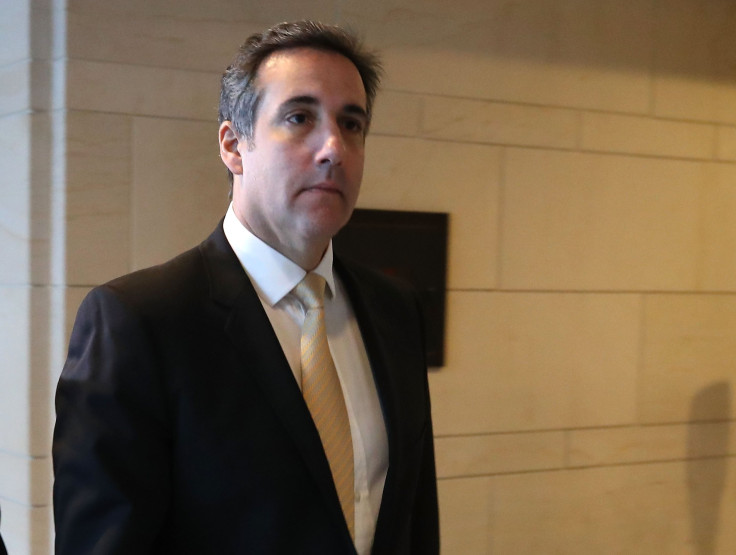Why Trump's Lawyer Michael Cohen Is Suing BuzzFeed And Fusion GPS

President Donald Trump’s personal lawyer Michael Cohen filed a lawsuit against the popular website BuzzFeed Inc. in the state court over claims made about him in the infamous Russia dossier published by the news organization about a year ago.
Cohen also filed a second lawsuit against political intelligence firm Fusion GPS which compiled the dossier that alleged collusion between members of the Trump campaign for the 2016 elections and Russian agents.
Prepared by the former head of the Russia desk at Britain’s main foreign intelligence agency, Christopher Steele, it included allegations that Cohen had secret meetings with Russian officials in Prague, Czechoslovakia, in August and had discussions on how to pay Kremlin-associated hackers for their work against the rival Hillary Clinton campaign.
ABC News reported that in both the lawsuits, Cohen claimed the "false and defamatory" allegations that resulted in “harm to his personal and professional reputation, current business interests, and the impairment of business opportunities.”
The complaint against Buzzfeed named top editor Ben Smith and others who worked for the organization like Ken Bensinger and Miriam Elder. The lawsuit stated that “even though Defendant Buzzfeed expressly acknowledged the unverified (and potentially unverifiable) nature of the Dossier's allegations, Defendant BuzzFeed published the un-redacted Dossier and the Article anyway — without attempting to determine the veracity of these reports with Plaintiff himself.”
Buzzfeed spokesperson Matt Mittenthal issued a statement to multiple news networks: “It was presented to two successive presidents, and has been described in detail by news outlets around the world. Its interest to the public is obvious. This is not the first time Trump's personal lawyer has attacked the free press, and we look forward to defending our First Amendment rights in court."
Meanwhile, the federal complaint against Fusion GPS said the organization “recklessly placed [the dossier] beyond their control and allowed it to fall into the hands of media devoted to breaking news on the hottest subject of the day: the Trump candidacy.”
Fusion’s lawyer, Joshua Levy, told Bloomberg he had not seen the lawsuit and that he had “not received a letter from counsel on anything.”
Cohen also staunchly denied having engaged in talks about employing Russia-backed hackers. He told ABC News on Tuesday: “I want to be very clear. I have never been to Prague or the Czech Republic, and I have never engaged with, been paid by, paid for, or communicated with anyone representing the Russian Federation or anyone else to hack anyone or any organization or disseminate false news reports or interfere in any way with this election.”
He also testified to congressional investigators probing Russian interference in the 2016 elections to the House Intelligence Committee behind closed doors on Oct. 24 and publicly to the Senate Intelligence Committee on Oct. 25.
"My reputation was damaged in December 2016 when BuzzFeed published an unverified dossier prepared by a retired British spy - Christopher Steele - that was riddled with total falsehoods and intentionally salacious accusations," Cohen said in his testimony to the Senate Intelligence Committee.
“My name is mentioned more than a dozen times in the lie-filled-dossier and so within moments of BuzzFeed's publication, false allegations about me were plastered all over the national and international press. The accusations are entirely and totally false,” he added.
According to Bloomberg, Cohen declined to say whether he was interviewed by Special Counsel Robert Mueller, who is directing the FBI’s investigation on Russian interference in the election.
He also added that he and Trump did not talk about the investigations. “Why waste time talking about something that’s not legitimate,” he said.
Ben Smith, the editor in chief of BuzzFeed News defended publishing the dossier in an op-ed to the New York Times on Tuesday.
“We strongly believed that publishing the disputed document whose existence we and others were reporting was in the public interest. Since we published, the public has learned a great deal more about how seriously the F.B.I. took the dossier,” he said.
© Copyright IBTimes 2024. All rights reserved.











